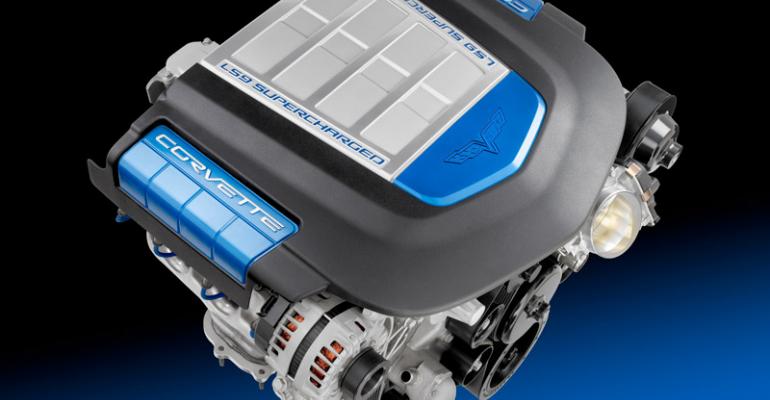DETROIT – A technical twist is revealed at a niche maker’s small space at the North American International Show here: The Fisker Karma electric car converted to run on the same engine that powers the Chevrolet Corvette.
And it’s not a pipe dream. The company, VLP, based in Auburn Hills, MI, so far has rebuilt two Fisker Karma models, renamed the Destino, and has six others under development. It will have 20 Karma models by this spring and fully expects to market them, WardsAuto learns.
The “VL” in its name refers to the two people who are developing the car: Gilbert Villarreal and retired General Motors Vice Chairman Bob Lutz. The “P” stands for “Production.”
Villarreal, described by Lutz as an industrialist, serves as VLP president and also owns Concorde Marine, a yacht builder based on the West Coast. The two men have known each other for three years. Both are avid aviators.
VLP initially purchased the two used Karmas, removed the electric-propulsion system and batteries and installed LS9 supercharged 650-hp engines and drivetrains supplied by the Chevrolet Racing unit.
Lutz says the project has the “beneficial support” of Fisker founder and designer Henrik Fisker. Villarreal says he always has admired Fisker’s designs. “When the opportunity came to make a version of the car that could break 200 mph (320 km/h), we worked with Fisker on getting it done,” he says.
VLP shows the two Destinos at a nondescript small space at the auto show. The design has been tweaked, and the engine compartment is loaded with the Chevy racing engine, which VLP expects to purchase eventually directly from GM.
“Our goal is the have the fastest 4-door sedan on the U.S. market,” says Villarreal. “We knew it could be hit or miss, but so far the reaction has been overwhelmingly positive.”
Among ongoing challenges is meeting federal safety and emissions standards, which is expected to be completed by June or July.
Villarreal says pricing hasn’t been determined, but he’s looking at $189,000, “depending on the bells and whistles.” No dealers have been signed, but VLP is eyeing outlets on both coasts and Florida.
Fisker has suffered a series of setbacks that have plagued its operations. Whether VLP can provide a spark remains to be seen.
Reached at Fisker’s headquarters in Anaheim, CA, a spokesman says VLP’s project “speaks to the appeal of the Karma and its stunning award-winning design” that other companies wish to “modify and customize them.”
He adds that VLP will buy 20 Karmas sans electric powertrain and batteries, but that doesn’t mean the two companies have a partnership or strategic alliance.





